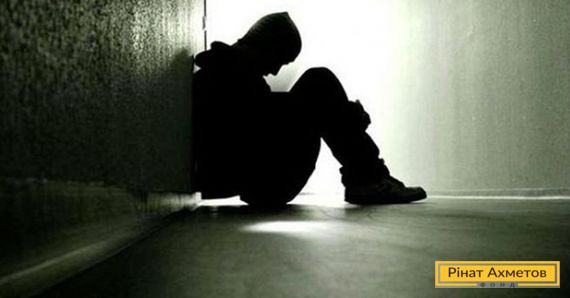Delayed reaction to trauma: what could be the consequences for the child? BLOG by Maryna Sorokina, Coordinator of Psychological service at the Rinat Akhmetov Humanitarian Centre

Ukraine has been living in a belligerent state for more than three years. During this difficult time, many Donbas residents suffered severe psychological traumas. However, psychologists emphasize the consequences of children’s trauma.
The difficulty lies in the fact that if a child is supposedly injured, the assistance is immediately rendered to him or her. The doctors closely monitor the wound and can definitely say when the patient recovers. As for the psychological trauma, it is treacherous and very often has a delayed effect. In other words, after the traumatic event, the child’s condition and behaviour may not change or the symptoms of trauma may be insignificant. In addition, sometimes parents may not associate changes in child’s condition with the trauma. Vivid manifestations of trauma consequences can appear months later and even years after the traumatic event.
It is also important to bear in mind that children can not always describe their condition and feelings verbally. Sociological surveys say that only 50% of children in direct contact with a psychologist could talk about the traumatic experience. For children, due to age-specific features, it is difficult to differentiate the condition and to establish cause-and-effect relations (where trauma is the effect); in some families, there is an unofficial prohibition to talk about bygones, and small children simply do not have enough vocabulary to describe their conditions. In addition, the child's mind activates defence mechanisms (for example, suppression - when a child tries to displace memories of trauma from his or her memory). The child may not remember the very events or a series of traumatic episodes, but at the same time they may experience very strong and overwhelming feelings. These powerful feelings can provoke:
- fear, which can sometimes be completely irrational or frightening;
- panic attacks, accompanied by fear, rapid heartbeat, a feeling of hot or cold;
- various depressive states;
- nightmares.
Strong feelings may also arise during the child’s contact with various triggers (to see a person in military uniform on a peaceful territory or to hear a smell reminiscent of a traumatic event). For example, if a child was eating his or her favourite strawberries during a sudden fire-blitz, then a year later, when this child sees the berries again on the table, he or she may have a panic attack. It may also manifest itself in the form of aggression, when an absolutely calm teenager experiences completely uncontrollable anger being bullied by a classmate. In some cases, the child begins to suffer various diseases, ranging from ARVI to much more serious. A very sociable child may suddenly turn into a recluse, and any contact with children and adults becomes painful for him or her. The cognitive abilities of the child may slow down and decrease. The child may become too impulsive or, on the contrary, try to control his or her own reactions, while looking completely calm. In the case of a delayed reaction to a traumatic event, the risk of developing PTSD of a child increases dramatically. However, only a specialist can determine the condition and causes of any child’s reactions or symptoms that appear.
It is important for parents to be aware that the child is more vulnerable and at risk of trauma than an adult. First of all, it is because children feel unable to influence the situation, they do not have enough life experience or their own resources to cope with complex events, especially if close adults are in a difficult condition themselves and cannot support their child. Moreover, due to age features, it is difficult for children to distinguish between reality and fantasy about what is happening. A child may perceive the world around him or her as hostile, full of dangers and to be in fear constantly. In this regard, the child may change his or her attitude towards people and the future outlook.
If a child supresses a traumatic event, the trauma continues to have a destructive effect on mental and physical health. If a child doesn’t mention a traumatic event, it is not an indicator that he or she has psychologically "digested" the traumatic experiences completely and the consequences will not manifest in the future.
Reach out to specialists for help in time, because your child’s future depends on you!




